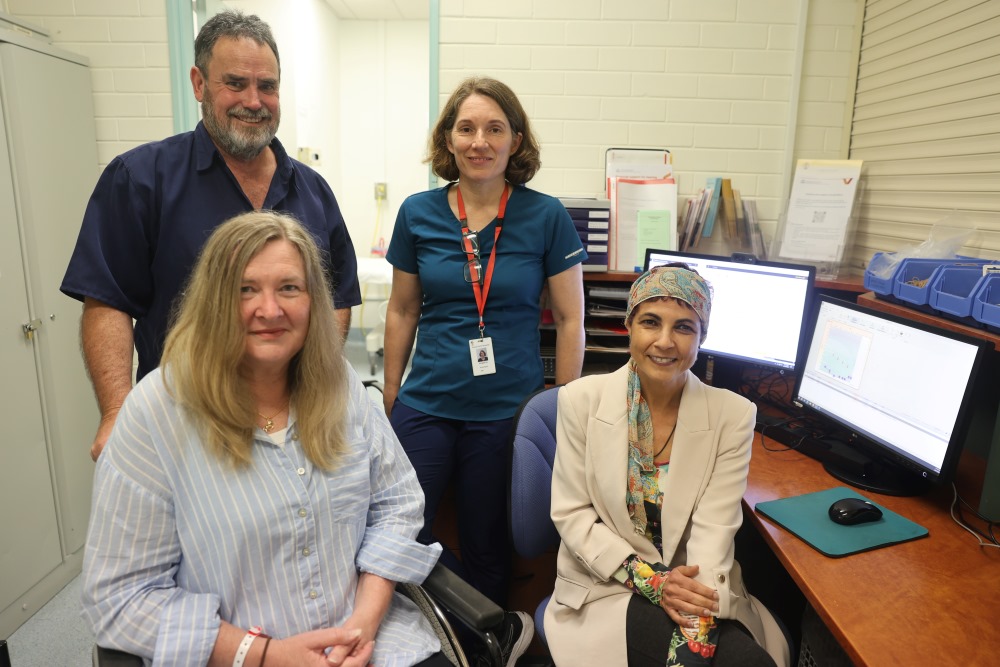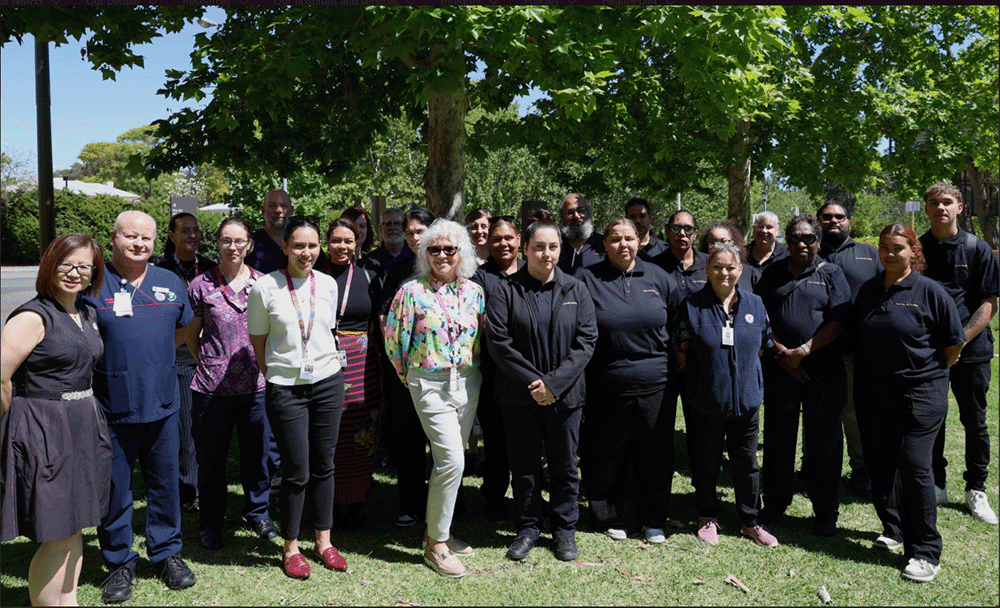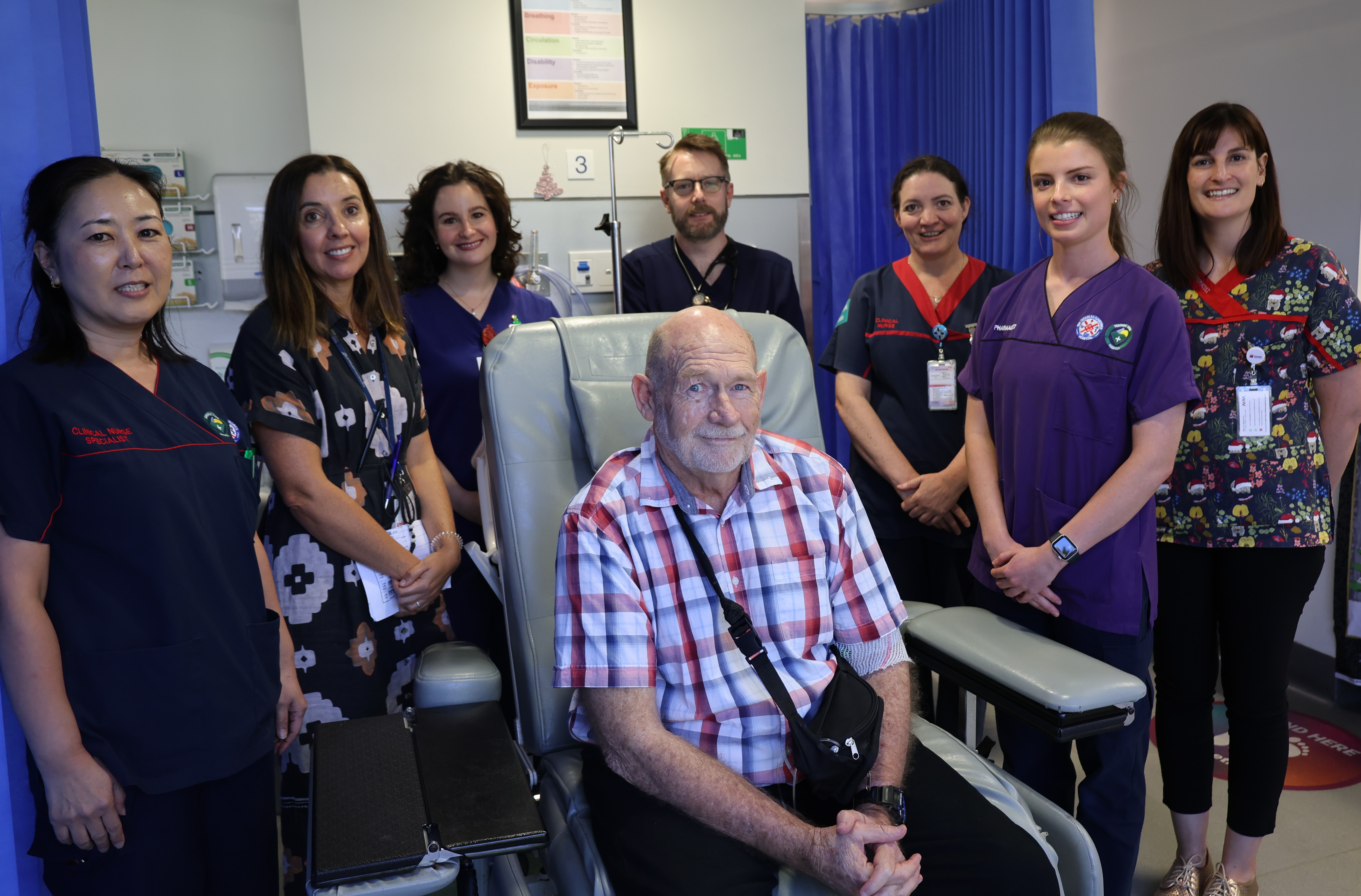Latest News
More News
-
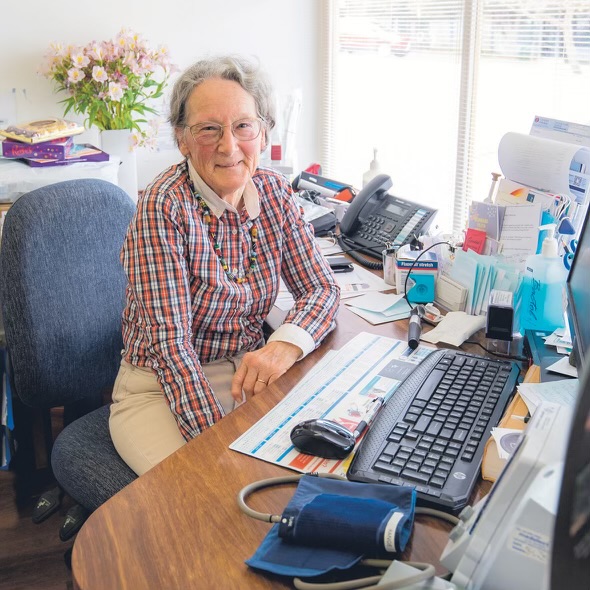 Australia Day Honours for former Sir Charles Gairdner Hospital doctor 14 February 2024 Congratulations to former Sir Charles Gairdner Hospital Doctor Virginia Longley, who had her 50-year career in health recognised with a Medal of the Order of Australia. A GP in Denmark for the past 20 years, Dr Longley started her career in health as an Ear Nose and Throat Registrar at SCGH in 1975 before moving into the Emergency Department. She then made the move to general practice, based in Spearwood, before relocating to Denmark in 2003. Dr Longley said she was surprised by the accolade but contributed the award to her willingness to contribute to communities in the best way she knows how. Congratulations Virginia!
Australia Day Honours for former Sir Charles Gairdner Hospital doctor 14 February 2024 Congratulations to former Sir Charles Gairdner Hospital Doctor Virginia Longley, who had her 50-year career in health recognised with a Medal of the Order of Australia. A GP in Denmark for the past 20 years, Dr Longley started her career in health as an Ear Nose and Throat Registrar at SCGH in 1975 before moving into the Emergency Department. She then made the move to general practice, based in Spearwood, before relocating to Denmark in 2003. Dr Longley said she was surprised by the accolade but contributed the award to her willingness to contribute to communities in the best way she knows how. Congratulations Virginia! -
 Please wear a mask 21 November 2023 Mask wearing is recommended for staff and visitors in clinical areas at Sir Charles Gairdner Hospital. Mask wearing is required for high-risk areas at all times. These high-risk areas at Sir Charles Gairdner Hospital are: Emergency Department G73 G65 G63 ICU IV Lounge D Block Respiratory Outpatients B Block G54 DD Block Outpatients Thank you for your cooperation.
Please wear a mask 21 November 2023 Mask wearing is recommended for staff and visitors in clinical areas at Sir Charles Gairdner Hospital. Mask wearing is required for high-risk areas at all times. These high-risk areas at Sir Charles Gairdner Hospital are: Emergency Department G73 G65 G63 ICU IV Lounge D Block Respiratory Outpatients B Block G54 DD Block Outpatients Thank you for your cooperation. -
 Congratulations Lucy Stopher 16 November 2023 Congratulations to Sir Charles Gairdner Hospital Nurse Practitioner Lucy Stopher who was awarded the prestigious Nurse of the Year Award at this year’s Australian New Zealand Society for Vascular Nurses/Surgery (ANZSVN/ANZSVS) meeting which was held in Cairns in October. Lucy has pioneered the nurse practitioner role in vascular surgery, after being the appointed the first ever in Australia. In this expanded role, Lucy runs her own clinics, prescribes, assesses, and manages her patients. She has also paved the way for others to follow in this rapidly expanding discipline, where many patients present with serious limb or life-threatening conditions. Lucy has driven many improvements to service delivery, patient care and outcomes through adopting and integrating new tech, multidisciplinary care, and nurse-led vascular clinics. Lucy is intensely passionate about improving patient ...
Congratulations Lucy Stopher 16 November 2023 Congratulations to Sir Charles Gairdner Hospital Nurse Practitioner Lucy Stopher who was awarded the prestigious Nurse of the Year Award at this year’s Australian New Zealand Society for Vascular Nurses/Surgery (ANZSVN/ANZSVS) meeting which was held in Cairns in October. Lucy has pioneered the nurse practitioner role in vascular surgery, after being the appointed the first ever in Australia. In this expanded role, Lucy runs her own clinics, prescribes, assesses, and manages her patients. She has also paved the way for others to follow in this rapidly expanding discipline, where many patients present with serious limb or life-threatening conditions. Lucy has driven many improvements to service delivery, patient care and outcomes through adopting and integrating new tech, multidisciplinary care, and nurse-led vascular clinics. Lucy is intensely passionate about improving patient ... -
 Shine a Light Walk - Saturday 4 November 31 October 2023 This November marks Lung Cancer Awareness Month, which aims to raise awareness of lung cancer and promote research into treatment and prevention. The SCGH Respiratory Department has collaborated with the Lung Foundation Australia to promote awareness and generate advocacy through a number of activities. Shine a Light Walk - Saturday 4 November Join the Perth Shine a Light Walk on Saturday 4 November from 4.00pm to 6.00pm at Lakeview Lawn, Kings Park. The event is being held across the country to raise funds to support ground-breaking lung cancer research. A lantern ceremony will be held to provide support to those affected by lung cancer, and remember and honour those lost to lung cancer. Participants are encouraged to wear a colour that represents the following: Purple: I am remembering a loved one Orange: I am living with lung cancer Green: I am showing support for the ...
Shine a Light Walk - Saturday 4 November 31 October 2023 This November marks Lung Cancer Awareness Month, which aims to raise awareness of lung cancer and promote research into treatment and prevention. The SCGH Respiratory Department has collaborated with the Lung Foundation Australia to promote awareness and generate advocacy through a number of activities. Shine a Light Walk - Saturday 4 November Join the Perth Shine a Light Walk on Saturday 4 November from 4.00pm to 6.00pm at Lakeview Lawn, Kings Park. The event is being held across the country to raise funds to support ground-breaking lung cancer research. A lantern ceremony will be held to provide support to those affected by lung cancer, and remember and honour those lost to lung cancer. Participants are encouraged to wear a colour that represents the following: Purple: I am remembering a loved one Orange: I am living with lung cancer Green: I am showing support for the ... -
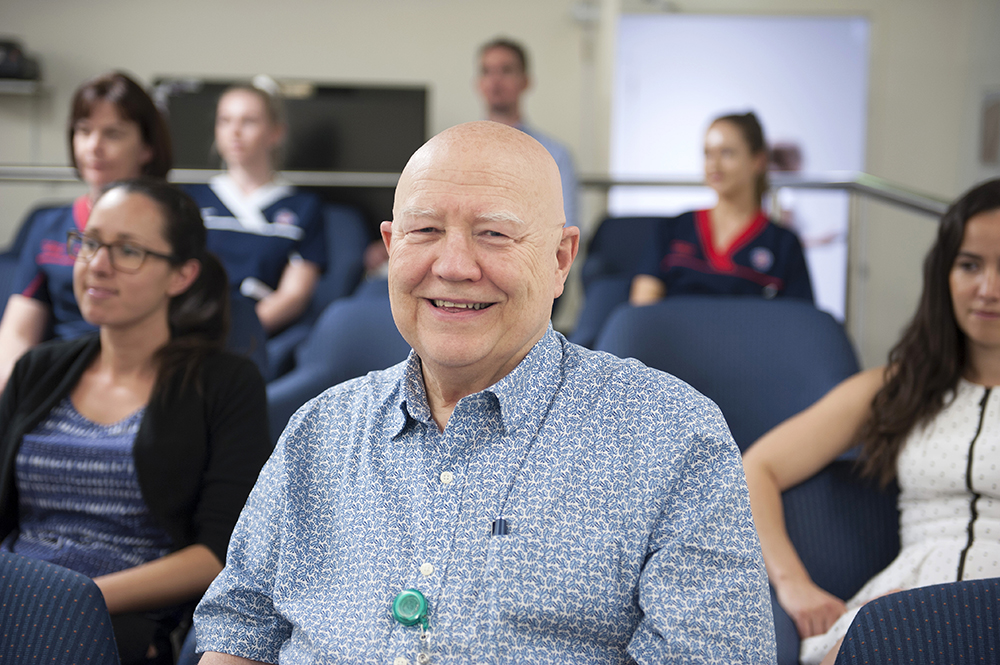 Volunteers required for falls education 24 October 2023 Are you interested in being a valued part of our hospital community and passionate about making a difference to patients' lives? We are looking for volunteers to join our Falls Education Volunteer Program to promote safety and independence across both Osborne Park Hospital and Sir Charles Gairdner Hospital. Volunteers will play a key role in falls prevention by providing personalised education for patients, and their families or carers, who are at risk of falling. You will help them identify their fall risks and develop prevention strategies using a simple and easy to follow workbook. Comprehensive training and resources will be provided to help you work with patients to identify their fall risks and develop prevention strategies. You will be provided with ongoing support from the falls multidisciplinary team, including the clinical nurse consultant and the physiotherapist. Key responsib...
Volunteers required for falls education 24 October 2023 Are you interested in being a valued part of our hospital community and passionate about making a difference to patients' lives? We are looking for volunteers to join our Falls Education Volunteer Program to promote safety and independence across both Osborne Park Hospital and Sir Charles Gairdner Hospital. Volunteers will play a key role in falls prevention by providing personalised education for patients, and their families or carers, who are at risk of falling. You will help them identify their fall risks and develop prevention strategies using a simple and easy to follow workbook. Comprehensive training and resources will be provided to help you work with patients to identify their fall risks and develop prevention strategies. You will be provided with ongoing support from the falls multidisciplinary team, including the clinical nurse consultant and the physiotherapist. Key responsib...
Last Updated:
12/04/2021



